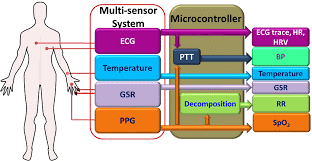Medical & Healthcare
Research Methodology
- Continued growth of Telehealth and Privacy concerns
- Rise Of The Nurse Navigator
- Difference between direct primary care and concierge medicine
- Stem Cell Technology
- Multiple Chronic Condition Research Network
- Wearables Support Bedside Care and Remote Patient Monitoring
- Telehealth Platform Enable Secure Connections from Anywhere
- Mobile Workstations offer more Seamless Care
- Quality Assurance in Nursing
- Decentralized Approach to Care Management
- New Insights into Complex Role of Mitochondria in Parkinson’s disease
Mobile Workstations offer more Seamless Care
As demands on doctors and nurses grow and evolve, mobile workstations can be an essential tool to help make their important jobs easier. Not only do the wheeled carts — which include keyboards and screens — provide necessities for clinical and administrative tasks, but they also help ease the physical stress many practitioners face during long shifts.
Equipped with intuitive functions and cloud-based software, Trio mobile workstations supply a vital link in connecting patients to caregivers and loved ones via videoconferencing — a benefit as visitation restrictions continue during the pandemic.
With a focus on long-term durability and high-quality design and function, each medication cart, mobile workstation, wall-mounted computing arm, or medication cabinet we offer fits the needs of your healthcare facility. Whether you’re in acute care, long-term care, or pharmacy. Healthcare environments have a wide range of challenges and we have designed our workstations to enable optimized mobility, adjustability, ease of use at the point of care, and clinician focused design. We have the solutions you need to streamline everyday tasks and improve workflow at an affordable price point.

Fig.1. Smart Homes for elderly healthcare (MDPI.com)
Mobile computer carts (or WOWs-workstations on wheels) in healthcare settings are becoming more robust, lightweight, and simple to use. Their streamlined design is topped only by their adaptability. Mobile workstations help caregivers save critical steps by carrying what they need most often to deliver patient care. They also are designed for clinicians to easily access EMR, or electronic medical records. A mobile computer cart that is well designed helps caregivers make better patient care decisions and avoid errors. And there are many developments to come.
The COVID-19 response has amplified the application of telemedicine carts with advanced communication and video capabilities. Telehealth expansion to connect patients in hospitals and senior living facilities with their families and outside care providers, for instance, is far-reaching; the Centers for Medicare and Medicaid Services have been expanding reimbursement rules for telehealth services. Workstations can include dual monitors and a wide assortment of specialized, plugged-in scopes to examine a patient’s throat, ears, skin, and eyes.
